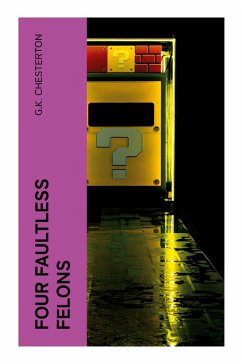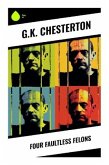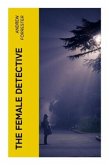In "Four Faultless Felons," G.K. Chesterton masterfully weaves a collection of four interconnected short stories that delve into themes of morality, justice, and the paradoxes of human nature. The narratives revolve around four seemingly flawless criminals, each presenting a unique moral conundrum that challenges societal norms and assumptions about guilt and virtue. Chesterton's literary style, characterized by his vivid imagery, wit, and philosophical undertones, offers readers a rich tapestry of thought-provoking reflections amid an engaging narrative. The book stands as a notable example of early 20th-century literature's exploration of ethics, foreshadowing modern discussions on crime and culpability. Chesterton, a prominent figure in the early 1900s literary scene, had a fervent interest in the complexities of faith, philosophy, and human character, which heavily influenced his writing. A prolific author and journalist, he was deeply engaged with the moral dilemmas of his time, often presenting unconventional perspectives. "Four Faultless Felons" reflects his fascination with paradoxes, particularly concerning the moral implications of crime, showcasing his ability to blend humor with serious philosophical inquiry. For readers interested in the interplay of morality and justice, "Four Faultless Felons" is an essential read. Chesterton's compelling narratives not only entertain but also encourage introspection, making this work a delightful philosophical journey. The book is highly recommended for those seeking to enrich their understanding of ethical dilemmas through a uniquely humorous lens.
Bitte wählen Sie Ihr Anliegen aus.
Rechnungen
Retourenschein anfordern
Bestellstatus
Storno








